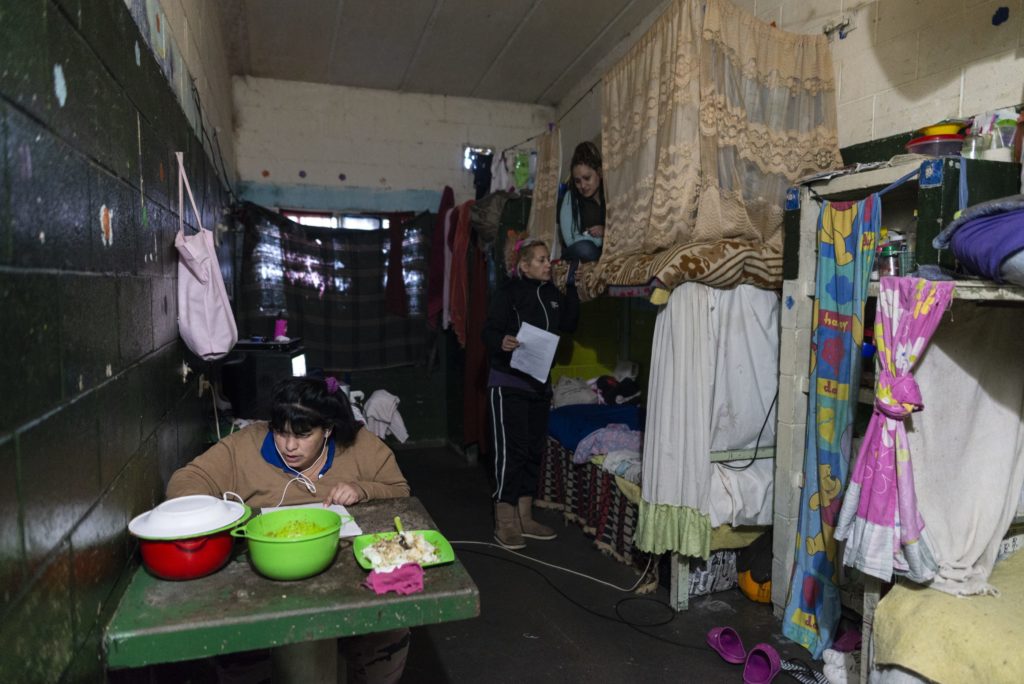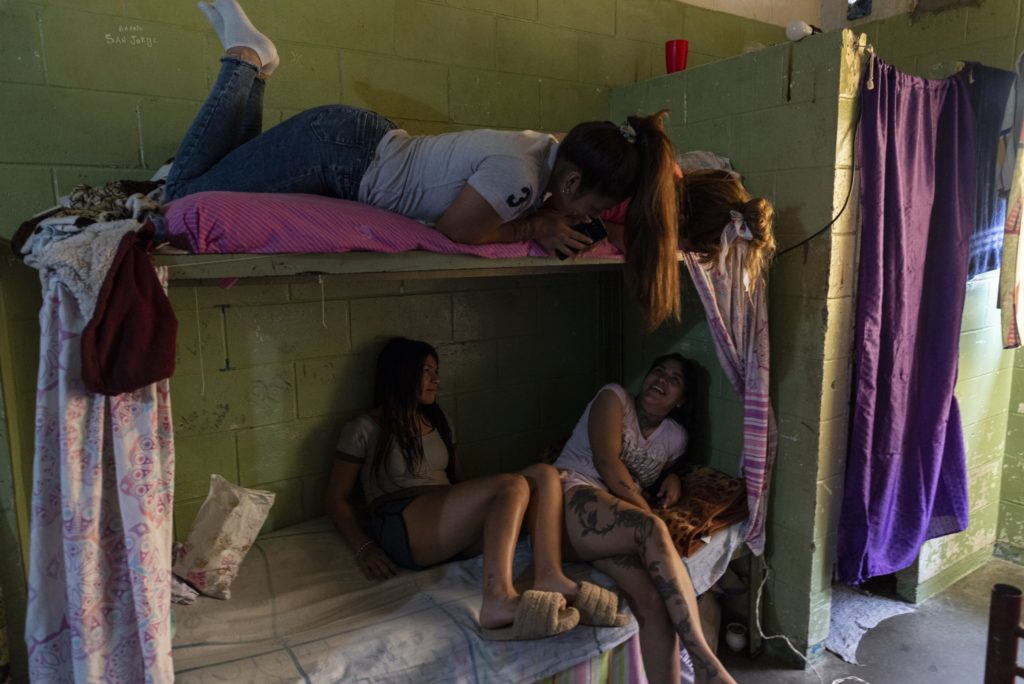
Paola helps her children with their homework over a video call in her cell
“Neighbors are the center of the universe to each other.”
Bessie Head
In March 2020, as the global COVID-19 pandemic was taking off, the Argentine government approved cell phones for incarcerated people. At that time, Paola was in Penitentiary Unit 47, in Buenos Aires. Upon receiving her phone, the first thing Paola did was call her neighbor, a number she had known by heart. The cell phones were the response to a quarantine that would have restricted visits, in-prison classes, and work outings, essentially increasing the isolation already faced by the prisoners every day. Access to phones has opened doors that were closed like zoom classes, facetime calls with families, digital payments, and one of the most important things: solidarity campaigns. Prisoners have used their cellphones to create Instagram accounts and solidarity campaigns to bridge the gap between prison and the outside world. Not only are the phones used to connect with people outside of prison, but Paola started a Whatsapp group to connect to her friends isolated in other cells, where they share information and activities and keep in touch. This story is important now more than ever because as the pandemic restrictions are lifted, families and human rights organizations are fighting to keep cell phones inside of prisons.
Prisons were designed to limit movement and connections between prisoners and the outside world; this is not a unique-pandemic experience and nothing at all like the celebrities who took to Twitter to share how their COVID-19 quarantine felt like a prison inside of the million-dollar Malibu mansions, but, I digress. What little solace there is to be found within the walls of prisons and jails is often found between the connections women can form, bonded by their mutual understanding of their positions in this world as female prisoners. With the recent death of Katherine Boudin, we can celebrate her work in creating carceral communities to share knowledge of literacy and AIDS; but we also fear for the future of such organizing in the wake of the COVID-19 pandemic.
Paola and her fellow inmates called their children, watched movies, celebrated birthdays together, and had increased access to attorneys, defenders, and legal information. Cellphones across various Buenos Aires prisons were not only used to organize protests but to document the abuses they were protesting and post them online. The videos called attention to the inmates’ abuse claims as well and legitimized them. In the age of social media, giving prisoners access to cellphones provides them a unique opportunity to pursue global campaigns and organizations. Prisons gain their power from isolation and severing ties within and among communities, but bringing them back together, even just virtually, could decrease the power of isolation that the carceral system holds over inmates. During a time of increased border patrol and family separation across national boundaries, maintaining global communities feels more important than ever. Where the global panopticon seems to gain control by maintaining constant surveillance, are cellphones giving us a way, when in the hands of prisoners, to reverse these effects? Does it give prisoners the opportunity to surveil their guards? To look out for each other? To look out for their families?
If neighbors are the center of the universe, then the prison-industrial complex was built to control and sever that center, and as a deadly virus spreads amongst neighbors in and outside of its walls, that center has become increasingly hard to grasp. Women have always found a way to support each other through friendships, campaigns, political organizations, and support groups. In the digital age, there is an opportunity to globalize these systems of support.

Friends watch a movie together in a Penitentiary Unit 47 cell
(By Abigail Langmead)
(Photo Credits: Rest of World / Magalí Druscovich)